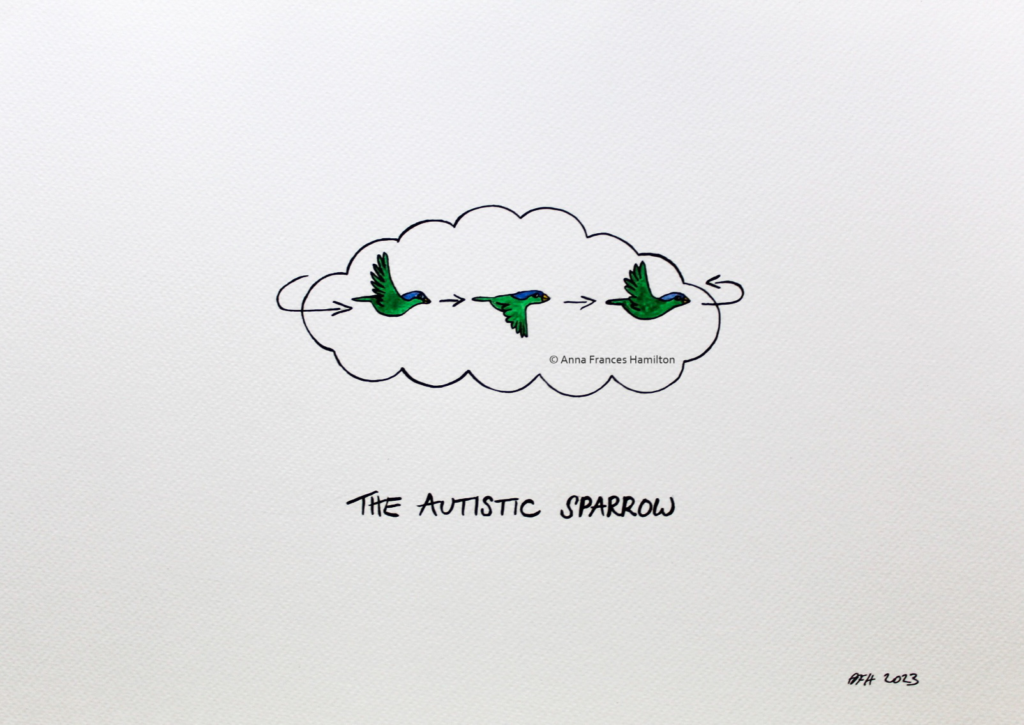
This series explores three different ideas: Urban theory, psychology and autism, i.e. lack of empathy and ability to relate to or communicate with others. It asks the question: Is it me, or is you? Is it nature, or is it nurture? Or is it the combination, of societal expectations, genetics and the intensity of urban life? This series is painted by myself, Anna Frances Hamilton, and I consider myself to be mildly on the autistic spectrum. I use art to unpack some of these contradictions I often face as someone mildly on the spectrum, as someone both very conversational and communicative, and also very sensitive in some situations, and occasionally quite overwhelmed, particularly in urban settings. Have I always felt like this? Well, that’s something I’m wondering, having lived in a big city, Bristol, UK, with a population of over 470,000, for over 7 years, and making lots of friends very easily, but losing touch with people almost immediately after ending of temporary contracts etc, struggling to cope often, finding it socially isolating often (although, again, I met lots of amazing people), compared to living in the small city of Exeter in Devon for over 3 years, with a population of over 130,000, where I had many friends I saw often, I found it easy to stay in touch even if we had very little in common, and I often had a lot more energy for others as a result of living in a smaller city. Is it me, or is it you? Or is it just a product of modern life, and urban living in big cities? That’s what I’m interested in exploring in this series.
The phenomena of movement is something that I think effects my generation (millennials/Gen Y), and also younger (Gen Z) in a very unique way. I am 33 at time of writing this, and between when I moved out my parents’ house in Reading at 19, and now, I have lived in 5 different towns and cities in just over 14 years, and every one I’ve lived in has been met with a similar theme: people move. New jobs, university courses, rising rent/house prices, family, travelling etc, movement seems to epitomize a generation of 20 and 30-somethings, to the point where I’ve hit fatigue, in different ways, and I find it harder and harder to ‘settle.’ Is this a product of identifying as being mildly on the autistic spectrum, or this more than that? Is it actually a product of urban life? Or are they both the same thing? In this art series I explore these themes of communication, urbanism and the autistic spectrum.
Urban theorist Georg Simmel wrote about the blasé or indifferent attitude of individuals as a result of living in the busy metropolis of a city, in Berlin, 1903, and the saturation of a person’s senses as a result of prolonged exposure to living in such an urban environment. Swiss psychiatrist Carl Jung in the 1950s, explores the ‘masks’ we wear, according to the ‘persona’ that society expects us to have, stopping us from expressing our true feelings with others as a result, instead with a desire to assimilate or ‘fit in.’ Autism, as a psychological term, first explored by Kanner in 1943, and later by Lorna Wing and Judith Gold in 1979, defines autistic traits as the inability to easily communicate, socially interact and relate to others.
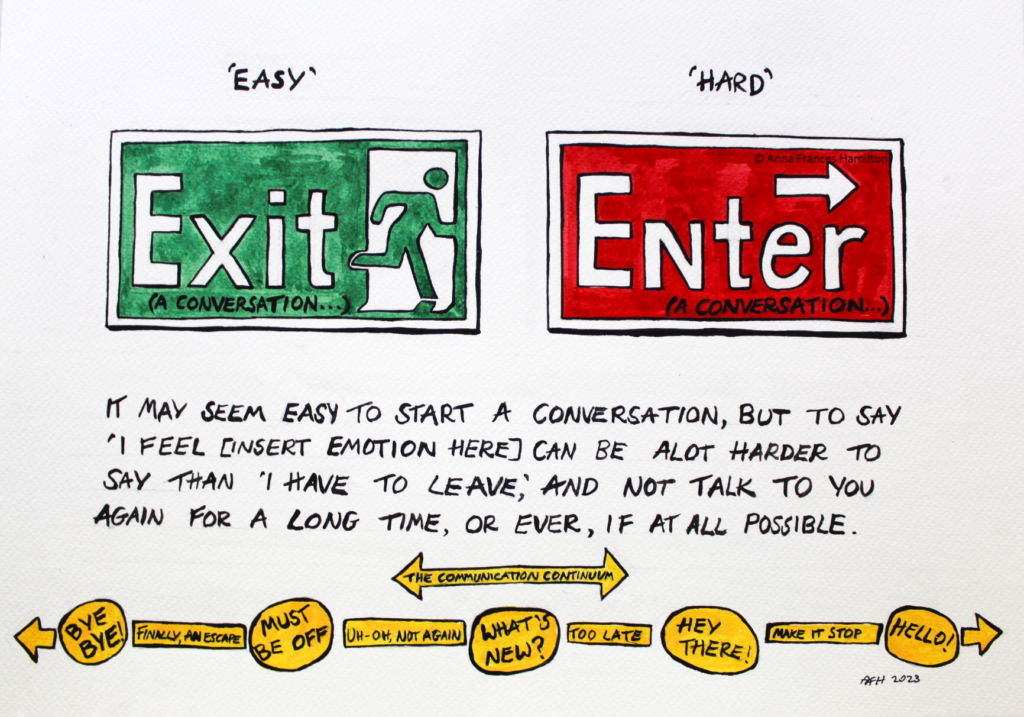
Striking up a conversation used to be easier when I lived in a smaller town. Egham, in Surrey, Exeter in Devon, Reading suburbia, outside of London, all easier to talk to people in different ways. In Bristol, I found it a lot harder. I found my own energy very depleted often, and I sensed a lot of people also just as tired/frustrated in a very unique way. What I gained from living in a ‘creative’ urban city like Bristol was diversity, opportunities and in a lot ways, open-mindedness. I came out as bisexual when I moved to Bristol, with the confidence that I wasn’t living in an environment where I couldn’t do that, although I was selective as to who I told and how I spoke about it, it felt easier to do that in a bigger city than a smaller one. The metropolis served it’s purpose: it gave me space to be myself, in a very unique way. I moved from Exeter as I found it so close-knit, I needed the time, and ironically, found it too intensive, because it was too small. That being said, both cities provided a richness of opportunities in different ways, and I love both for different reasons. The small town of Egham in Surrey was amazing, and inspiring, because it was both small and big. It was 40 minutes from London by train, and tiny, as a population at the same time. Again, it was very very intensive because of the smaller population. All 3 places I loved, and having moved from my home town in Reading, I learned a lot about myself by meeting new people, in different ways. Reading as a place to grow up was very intensive, as I lived in a suburb, Tilehurst, which used to be a village, before they built on the fields between the village and Reading town centre. The pace was slow, but buzzing at the same time, and I felt very lucky to have the contrast of both suburban life, and countryside, not far from my home.
I digress. Talking: Easy. But not. I find it easier to connect with people about things I have in common, like a hobby, or an interest, than I do about anything else. Is it me or is it you? Read on to find out more.
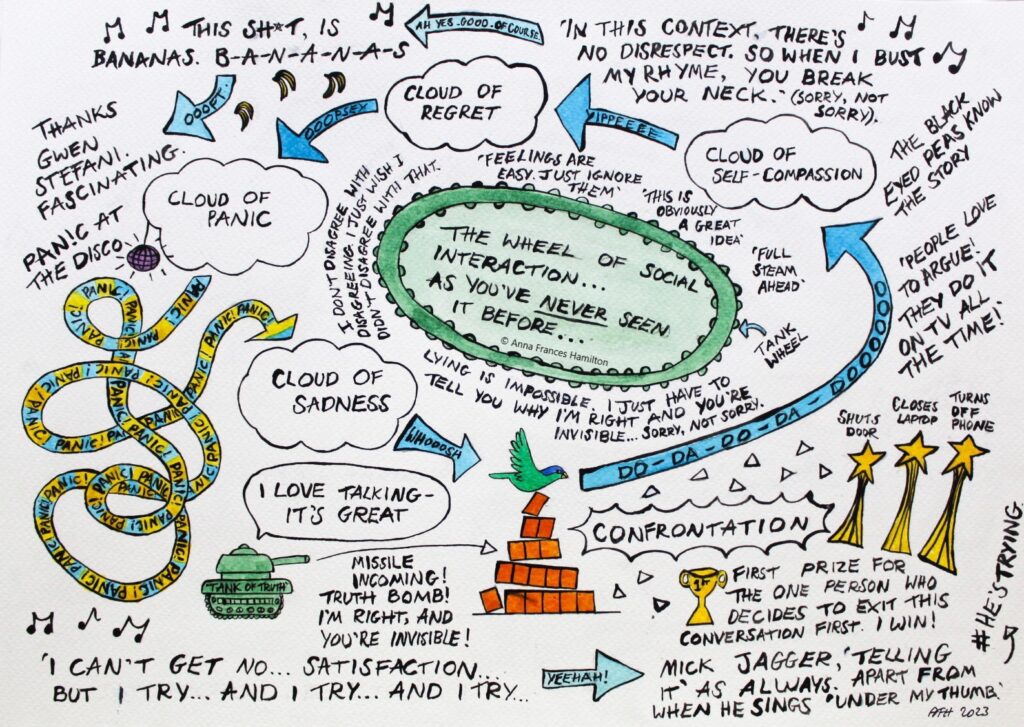
Confrontation is a difficult topic in a lot ways. I’ve often struggled with confrontation as I fear rejection often. It’s hard when people don’t listen and accept your own feelings as ‘yours.’ Culturally, as a woman, I’ve been conditioned to accept other people’s opinion’s are ‘right’ and mine are ‘insignificant’ in a lot of ways. I struggle with depression often, especially when my opinion about my own body, my own body image, my weight, my height, my age, my gender, are criticised, manipulated through the media, or just ignored, through societal expectations to ‘fit in.’
The ways I express myself are often ‘dumbed down’ and I hate it. I hate saying ‘probably’ rather than ‘no.’ I hate saying ‘possibly’ rather than, ‘absolutely not.’ I hate saying, ‘I’d consider it,’ when I don’t need to. I feel pushed around often in jobs where I’ve been working on below the poverty line, working above my pay band, doing work that should be valued on 6 pay bands higher than I’m on, and I have been criticised for speaking out about this.
Is it me or is it you?
Is it really just ‘power’ I’m talking about here? Is it state level, or is it grass roots? Is it anything to do with autism, that I want to express myself, and can’t? Or is it socially conditioned to stop talking? I explore this more in the ‘talking and listening series’ below.
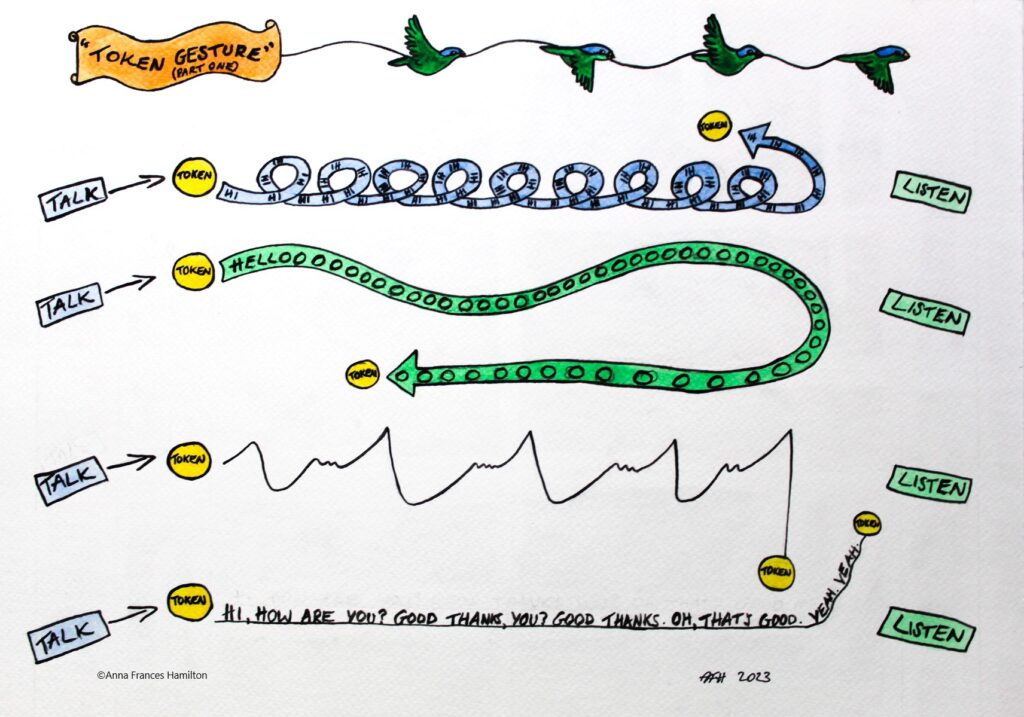
The ‘talking and listening’ series explores the complexities of the topic of talking and listening. In ‘Token Gesture: Part One’ I explore the feeling of talking being a ‘token gesture.’ What do I mean by that?
Many things.
I am very intelligent and I think that some people think that identifying as mildly on the spectrum means I’m not. I don’t agree.
‘Talking as a token gesture’ explores the frustration of not being heard. I often found myself at school in particular saying things that weren’t accepted because of the way we were taught. Questioning racism and sexism in class was ‘not on the syllabus.’ It was only when I went to university that I realised how many people are thinking along the same lines that I am: prejudice is wrong. I am not very sure how to talk about it here, as I fear rejection, from people who are so on the spectrum themselves that they assume I don’t know what I’m talking about.
I will continue.
I am an empath. I am sensitive. I care if people are upset. I am rejected often, for doing so.
Thank you.
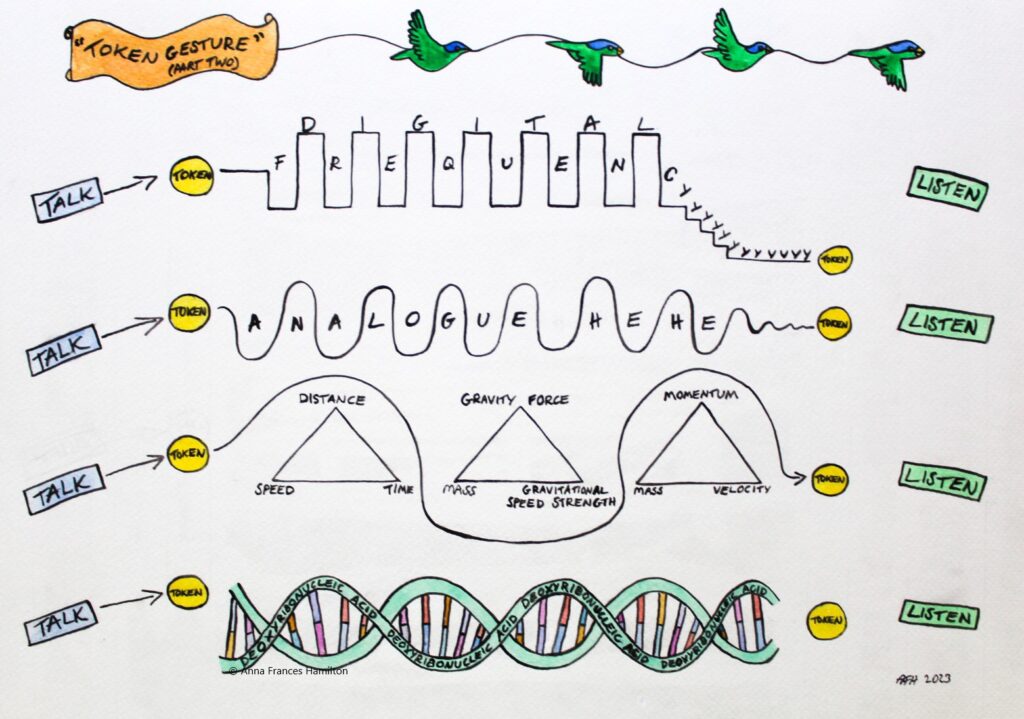
Caring. Caring. Caring. Is it ‘on the spectrum,’ to care? Good question. I often find myself in a position of confrontation, for caring. Politics, might be another word for it. Left wing, might be another. I care. I care if people are hurting myself and others, and I raise my voice sometimes if that happens. I care if I’m being silenced, and the use of the word ‘left wing’ is scaring some people already. But I think it’s relevant. Autism, is one word for not being able to connect with others, and another word for this, is domination. I find the system of universities, in particular, full of contradictions. Is it ‘wrong’ to say that men are doing the wrong thing?
Am I over stepping the line? Am I ‘autistic’ to care? Thank you.
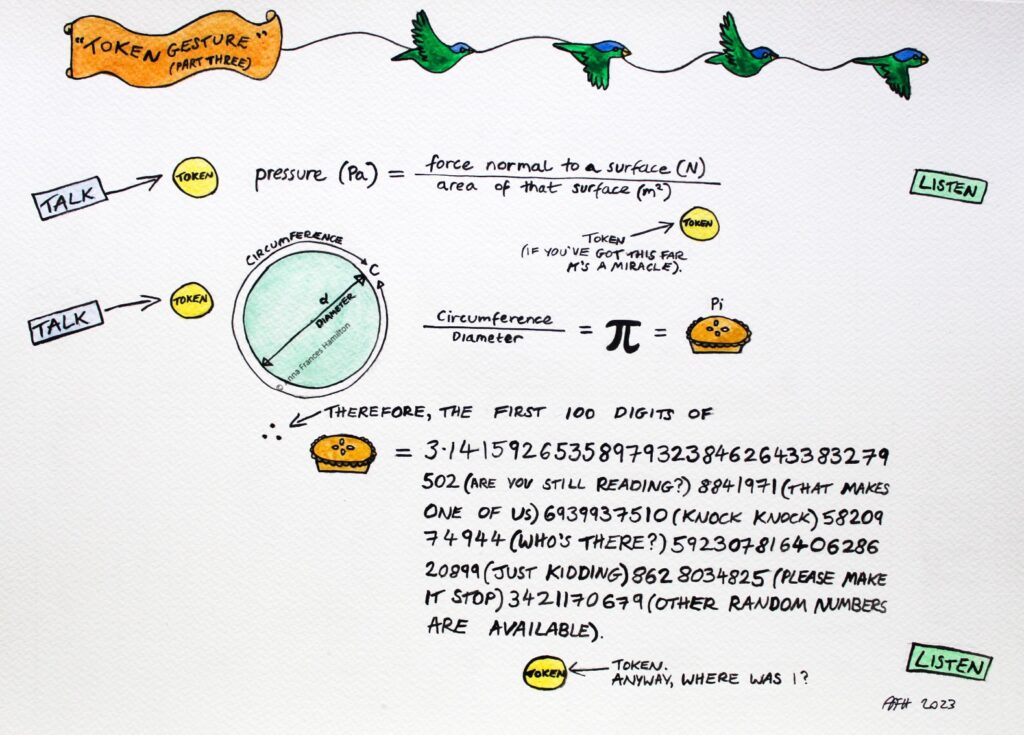
Manipulation, domination and control are used to silence many, through division and in some cases, shame. Shame for bothering in the first place. Name calling, reducing someone down to their gender and nothing else. It’s domination in a very unique way, to suggest a woman who has been hurt by another man, is ‘breaking the rules’ for talking about it.
I would describe that attitude, of silencing, as ‘autistic.’ I would describe that attitude of silencing, as ‘domination.’ I would describe that attitude of silencing, as ‘control.’
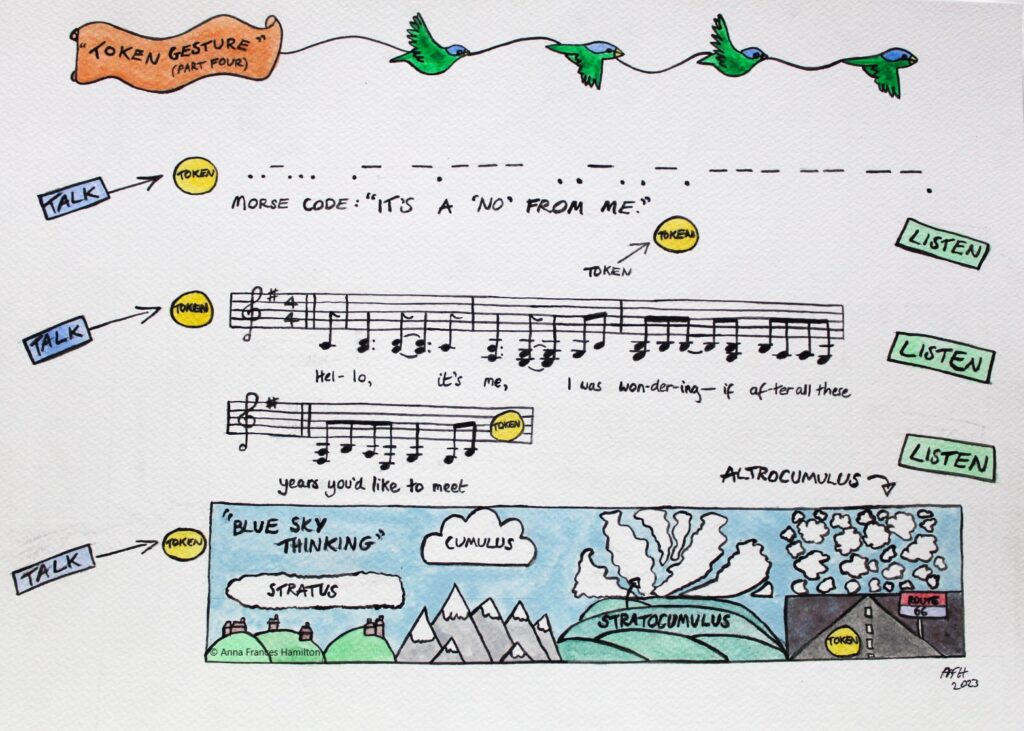
I was raped by MSc Computer Games Design student at the University of West England, Saad Saihi, in February 2023. You can find out more about my story on yoniverse.co.uk. You can also see my latest ‘work in progress’ on my blog here. Thank you.
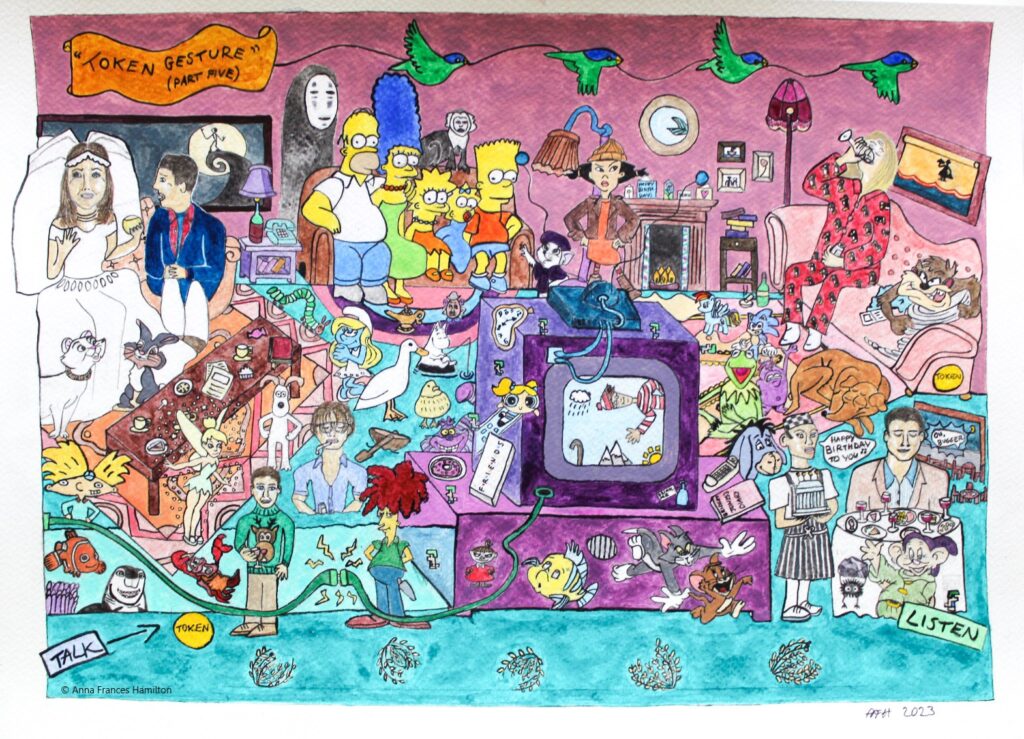
© All rights reserved Anna Frances Hamilton 2024